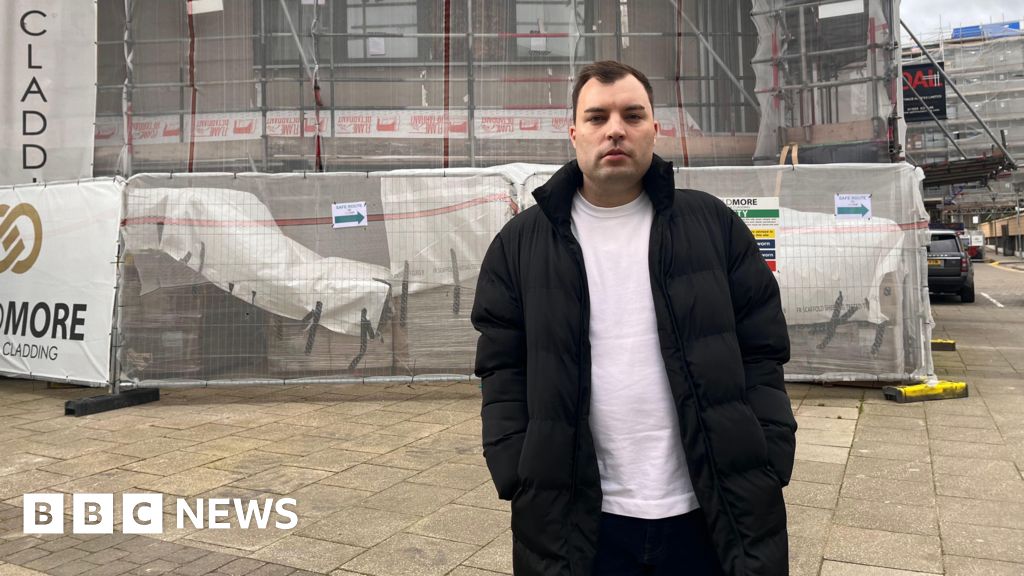James Greenwood says ‘waking watch’ patrols make life a financial nightmare for leaseholders with rapidly rising fees.
- Author, Guy Lynn
- Role, BBC News
The ongoing costs of round-the-clock fire patrols in residential tower blocks is becoming a “financial nightmare” a resident has said.
More than 180 residential buildings in London have patrols known as waking watches after failing safety inspections in the wake of the Grenfell fire tragedy, which killed 72 people.
Resident James Greenwood added: “There’s little transparency around the costs and who should pay.”
Gallions Approach, the management firm overseeing the block where he lives says they’re essential for fire safety and will be discontinued later in 2024.
Image source, Getty Images
The Grenfell Tower fire killed 72 people in 2017
London Fire Brigade has said as the buildings have flammable materials they require extra precautions.
A waking watch involves hiring personnel to continuously patrol a building 24/7 looking for signs of fire. They carry airhorns so they can quickly awake residents for evacuation, if necessary.
These patrols are interim safety measures in place until construction crews can remediate combustible exterior cladding and insulation.
Dangerous materials and general fire safety deficiencies across the UK came to light after the Grenfell fire investigation.
This revealed combustible exterior cladding helped accelerate the 2017 blaze, prompting authorities to require immediate safety improvements in similarly vulnerable residential buildings.
‘Service charge up by 130%’
One development undergoing remediation and waking watches is a 447-unit apartment complex near Royal Docks, called Royal Quay, where flammable cladding is being replaced.
Beyond noise and dust aggravating tenants, the biggest worry is the cost of measures like the mandated waking watches, which are in place overnight, as the buildings have a concierge there during the day.
With residents as leaseholders, they are concerned spiking service charges will largely fall on them.
“Our service charge has gone up 130% in just the past six years.
“That kind of percentage is just insane,” Mr Greenwood, a university administrator added.
“For me personally, like everybody else, I’m struggling like everybody else to cover all of those costs on top of everything else.
“Increased ground rent, increased service charge, everything’s going up,” he said.
Image source, Getty Images
The fire patrols carry airhorns to wake up residents if a fire breaks out overnight
According to latest figures from the London Fire Brigade, 1,279 buildings are currently in what’s known as “simultaneous evacuation”.
This is when the whole building has to be evacuated if a fire breaks out rather than being able to “stay put” due to insufficient fire protections such as cladding being present.
Waking watches are required in 124 buildings in London that are over 18 metres (59ft) high and 61 which are less than 18 metres high.
Gallions Approach said: “The waking watches were put in at the insistence of London Fire Brigade after it was discovered that the buildings had flammable polystyrene insulation in the external walls.
“The waking watch staff are paid the minimum wage and they will be discontinued once the works to remediate the flammable materials are completed in September 2024.”

Laura Adams is a tech enthusiast residing in the UK. Her articles cover the latest technological innovations, from AI to consumer gadgets, providing readers with a glimpse into the future of technology.








